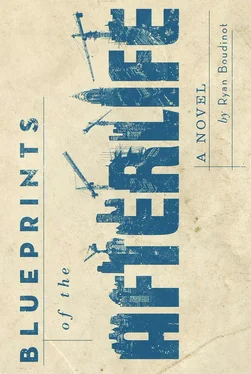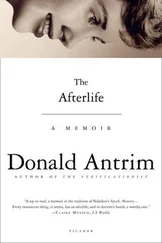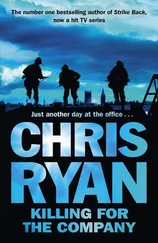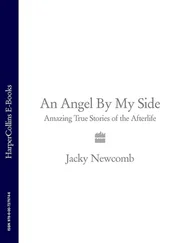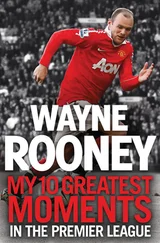“On the drizzly day I showed up on the campus, the linguist introduced me to someone named Dr. Pliss. A Native American man, he specialized in recording and preserving languages that were on their way to extinction. We met in his office over coffee and he seemed excited. He said that he was pretty sure Marc was speaking in a language that hadn’t been spoken in over a hundred years, one that belonged to a tribe whose last known members were slaughtered in eastern Washington in the late 1800s near Lake Chelan. Dr. Pliss was a broad, heavy man but his voice wavered as he spoke about how rare and miraculous this was. He only knew about the language because a missionary had written a document in 1890 in which he instructed other missionaries how to communicate with the tribe.
“This was all fascinating but I wanted to know what Marc was saying . That’s when the linguist—sorry, I can’t remember her name—and Dr. Pliss looked at one another in a strange way. Then Dr. Pliss pulled a piece of paper from his file drawer and slid it across his desk to me. It was filled with words in all capital letters. They said: KILL THE BOY, HE WILL BRING ABOUT THE LAST DAY, HE WILL DESTROY THIS WORLD, KILL HIM NOW, KILL THE CHILD, KILL HIM BEFORE HE BRINGS DARKNESS AND SUFFERING, YOU MUST KILL HIM, YOU MUST STOP HIM BEFORE HE BRINGS ABOUT THE DEATH, STOP HIM STOP HIM, HE BRINGS DEATH, KILL HIM, KILL YOUR SON, KILL YOUR SON NOW, KILL HIM NOW, KILL KILL KILL HIM, YOU DON’T HAVE MUCH TIME, KILL THE BOY, KILL THE SON, KILL HIM STOP HIM NOW.
“The linguist led me out of the building, supporting me as I stumbled down the hall and out onto Red Square. I was terrified to go home but my terror for my own safety was nothing compared to my fear that my husband was going to hurt my boy.
“When I got home, Marc was sitting in the living room holding the letter from the linguist. He asked what it was. In ten minutes our world unraveled. I told him about the tape I had sent to UW, and of the conversation I’d just had with Dr. Pliss. I told him about what the transcript said. Marc was furious. I watched his face waver between fear and rage. The shack became too small to contain his emotions, so he went outside. I sat on the couch and cried. A while later I heard the echoes of hammering and I looked out the window to see him pounding nails into plywood, working on the interior walls of the new house. He worked well into the night. I went to bed and lay awake waiting for him. When he finally came to bed, smelling of sawdust and sweat, I tried to touch him but he shrugged me off. I listened to him fall asleep and that night he didn’t talk in his sleep for the first time in a long time.
“The next morning Marc got up early and went out to work on the house again before he went to his job. I walked Nick to the bus stop, returned home, and made some tea. As I pulled the teabag from the cup I heard Marc cry out. I raced outside, knowing he’d been hurt. When I found him he was lying unconscious on the concrete foundation. He’d fallen from the second story. Blood was coming out of the back of his head, pooling on the foundation.
“In the hour I watched my husband die I lost my mind. I could have gotten in the truck and driven to the nearest house with a phone. I could have run down the driveway and flagged the first passing car. But I chose to stand and do nothing and let him die. I felt for his breath with the back of my hand. I felt it coming from his nostrils at first, in little bursts. The halo of blood grew wider. Then his breath stopped and his skin grew cold.
“I chose my son over my husband. As I watched Nick grow I remembered Marc’s dark prophecy in the language of a long- extinct people. I locked his shedful of silly plans. My world grew dark and small. Nick was all I had, my only reason to live. Until one day his friend, who’d suffered the loss of his whole family, became my lover. For a brief moment our darknesses canceled each other out. Then Luke had to leave.
“Nick returned home from time to time as I became an old woman. He spoke of a glorious new age. He barked and paced, drunk on philosophy and the future of man.
“I just wanted to protect my little boy. I didn’t want—please, I didn’t want those horrible words to be true. Please don’t let them be true.”
As the little girl sobbed, Abby quietly retreated from the shack, rattled, convinced in her gut that this testimony was not hers to witness. Why had she, of all people, been privy to the story of the onset of the FUS? And what ever became of the recording she’d made at the Seaside Love Palace? Rather than illumination, all this information about Luke, Nick, and Star promised an ever-encroaching darkness. It was as though the very thing preventing her from acting on these stories was her inability to remain herself. She kept slipping, lightly superimposed over her own body, the borders of her self and her physical form not quite jibing. While snooping on other people’s lives, her own had come under increasing, unnerving, and invisible scrutiny.
Eo was gone. Up ahead, through the trees, came street noises, honks, a river of rubber and asphalt. Between the trunks of trees materialized the gray faces of buildings. Abby stepped from the woods onto Broadway, across the street from Lincoln Center, and rubbed her eyes.
Later, at home with bouillabaisse and a sandwich purchased from a deli around the corner from her apartment, Abby watched some early films by Thomas Edison on Sylvie’s ancient television set. A man played a violin for fourteen seconds. An elephant, electrocuted. A steam train charged the camera, sending early-twentieth-century audiences scurrying for cover. Rightly, she thought.
In Central Park Abby watched children. Gleefully unaware that they inhabited a simulation of a once-vibrant city, the children appeared to understand that this was their world to take. The adults, far less so, as they meandered paths and contemplated the skyline from benches and hills, enraptured by the illogic of it all. Abby overheard gossip about some of the older people, folks who’d actually lived in or visited the original Manhattan, reduced to inconsolable weeping, begging to be returned to Seattle, away from this reminder of the greed and weaponry and genocides that had once infected the world. These elderly visitors to the city were doubly troubled at the sight of newmans busily at work, the former enemies of human beings now rebuilding and making amends. That the newmans had developed a sense of altruism struck them as a colossal hoax. Abby sat on a bench with a bag of popcorn and watched one FUS survivor go insane in front of her eyes, clawing at his face and screaming of terrors inexpressible. A couple citizens representing police officers escorted him from the park.
Woo-jin, meanwhile, found himself in a penthouse on Park Avenue, in one of the homes of Isaac Pope, a residence the late billionaire had never even actually visited. The closet was stocked with wing tips, French-cuffed dress shirts, tailored suits, and a row of pressed fantasy-themed T-shirts shrugging on wooden hangers. In the bathroom various scented things in bottles stood on polished marble shelves. After a shower of confusing shampoos, Woo-jin found a suit that fit and did the best he could to make his face look like a real face. Clothed, back in the master bedroom, he nudged a door that opened onto a hallway lined with art he didn’t have the patience to glom on to brain-wise. In a library, hardback techno-thrillers squatted in exotic hardwood bookcases. A couple of replicated contracts sat unsigned on the desk. Woo-jin wandered to the kitchen, where he paused to eat some things like sandwiches and puddings, then into a living area with an enormous movie screen. He thought of how less cramped Patsy would have been in here. Patsy growing eyeballs in her armpits, braying for gingersnap cookie dough. Smushing his face to a window and watching cars far below, Woo-jin whispered her name. After a while he pulled his face from the glass, leaving two dripping patches of tears, then wearily pushed his cart laden with the pizza box manuscript to the elevator.
Читать дальше
